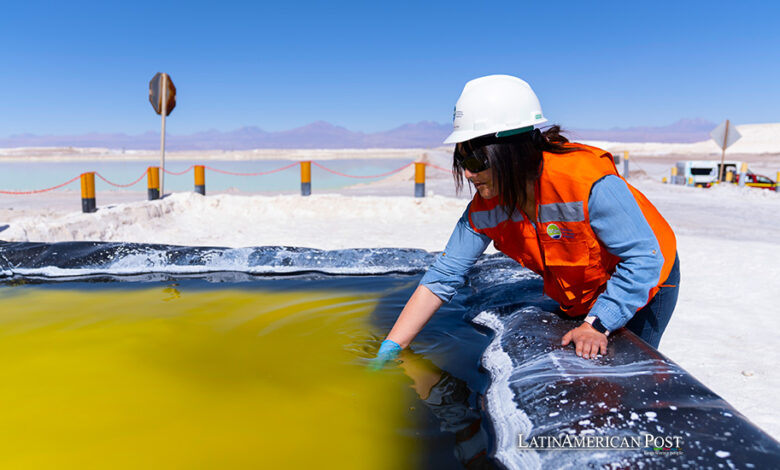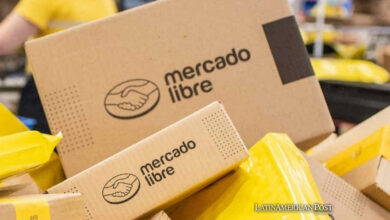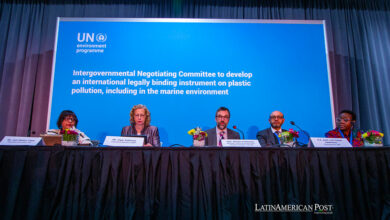Chile’s Lithium Protest Unveils Complex Balancing Act

BIndigenous groups have taken to the streets, blocking access to lithium extraction sites owned by domestic producer SQM and U.S. firm Albemarle. This demonstration, ignited by a recent agreement between SQM and state-run copper firm Codelco, has ignited tensions, exposed deep-rooted frustrations, and left an indelible mark on the lithium industry.
A Challenge to Lithium Plans
As the world witnesses this protest unfold, all eyes are on Chile, the second-largest lithium producer globally and a crucial player in the supply chain of the batteries powering the electric vehicle (EV) revolution. This standoff represents a significant challenge to Chile’s ambitious plans to assert greater state control over lithium production.
At the forefront of this movement is Yermin Basques, the leader of the indigenous Toconao community. He explains that local groups have strategically blocked public roads leading to the mining operations south of the salt flat. This blockade has effectively halted the flow of workers, supplies, and lithium in and out of the area, causing disruptions for SQM.
Basques emphasizes that indigenous communities feel marginalized and excluded from the negotiations that took place between SQM and Codelco, which bolster state control over lithium—a move in line with President Gabriel Boric’s announcement in April. This isn’t a dialogue for Basques and his community; it’s an imposition.
Protesters Demand Inclusion in Government Discussions
The protest’s impact is substantial, with approximately 500 demonstrators stationed at six different points along public roads in the southern region of the salt flat. Their demand is apparent: they want President Boric to involve them in the discussions between SQM and the government.
This standoff comes as the global demand for lithium skyrockets, driven by the electric vehicle boom. Lithium-ion batteries are the backbone of modern EVs, and securing a stable supply of this critical metal is vital for countries aspiring to lead in the transition to green energy.
Endowed with vast lithium reserves, Chile aims to maximize the value of its lithium resources while ensuring they benefit its people. President Boric’s plan for state involvement in lithium production is part of this vision, aimed at reaping more significant economic benefits and preventing the depletion of this finite resource.
Navigating the Complex Web of Interests
However, this endeavor has its challenges. The delicate balance between state control, indigenous rights, and corporate interests is a complex web that Chile must navigate. While the government seeks to protect national resources and the environment, indigenous communities have long-standing concerns about the exploitation of their ancestral lands.
The protest at the Atacama salt flat reflects a broader clash of interests and values. It underscores the tension between economic development, environmental conservation, and the rights of indigenous peoples—a multifaceted struggle that resonates globally.
For SQM and Albemarle, the protest poses immediate operational challenges. Disruptions to lithium extraction, transportation, and exportation could have significant repercussions for both companies, which play pivotal roles in the global lithium supply chain. Any prolonged disturbance could affect lithium prices, potentially impacting the electric vehicle industry’s growth trajectory.
Companies Respond Differently to the Crisis
Albemarle, the U.S.-based mining giant, has stated that its operations are continuing as usual, focusing on employee safety. On the other hand, SQM has remained silent about the ongoing protest. Both companies are undoubtedly closely monitoring the situation, acutely aware of the potential ramifications.
The protest also highlights the need for a comprehensive approach to address the intricate issues surrounding lithium production in Chile. A dialogue that includes indigenous communities, mining companies, and government officials is imperative. Finding common ground and crafting solutions that balance economic development with environmental stewardship and respect for indigenous rights is formidable.
Also read: Chile’s Lithium Revolution: A Partnership for Sustainable Development
Chile’s aspirations to exert more control over lithium are valid and aligned with global trends toward responsible resource management. However, the path forward must be built on inclusivity, respect, and collaboration. Balancing the nation’s economic interests with the well-being of indigenous communities is a moral imperative and a necessity for sustainable progress.




